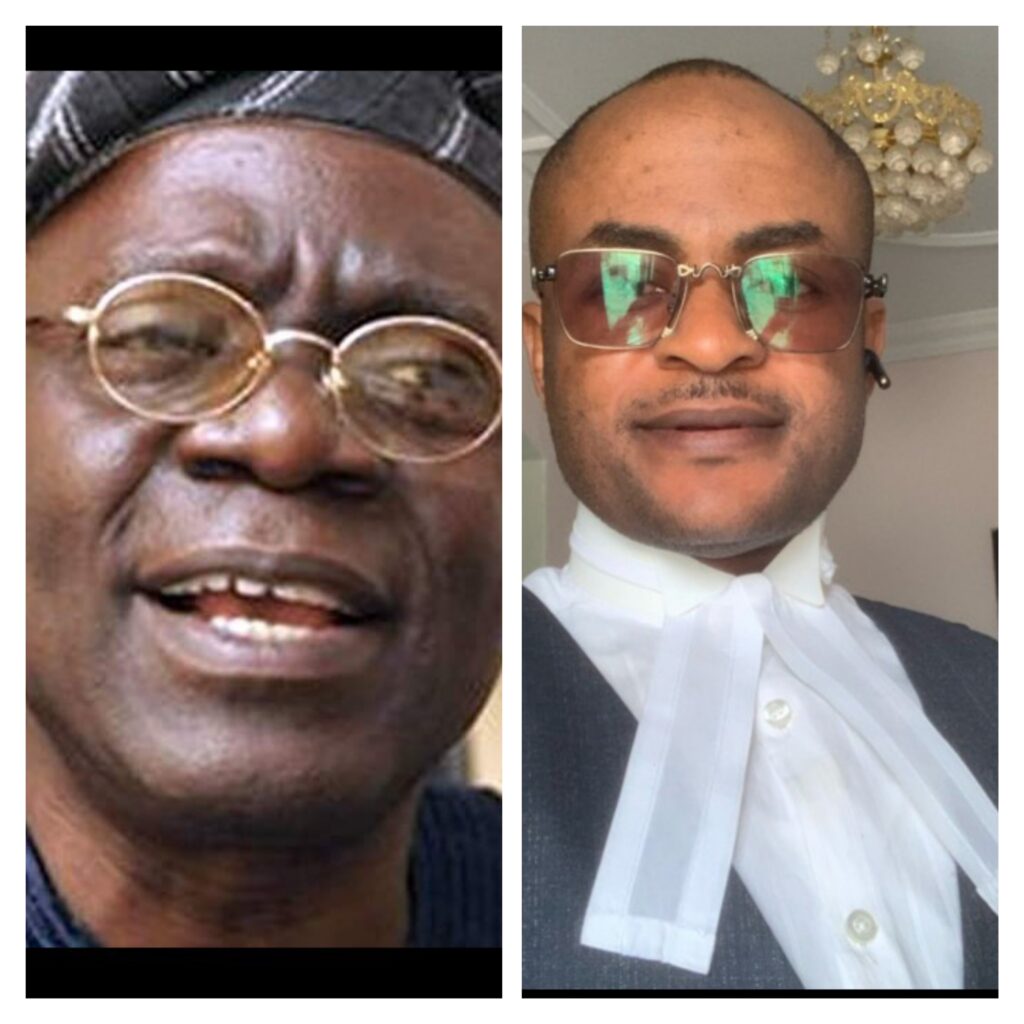In a separate interview, held with both Barrister Femi Falana, SAN and Barrister Tunji Fasanmi recently, they both bear their minds on whether the use of Executive Orders by State Governor’s and the President of the Country are legal and backed up by the Country’s constitution.
Barrister Femi Falana, SAN, in his own legal opinion on the issue of Executive Orders, which has generated arguments in some quarters, revealed, that, “section 5 of the Nigerian Constitution vested the Executive powers of the Nigerian Federation on the President and the State Governor’s”.
Falana in his submission, argued that “section 315 of the 1999 Nigerian Constitution also empowers and confers on the President the power to modify federal laws while a State Governor similarly has the power to modify state laws”, he submitted.
Furthermore, the Chairman of the Ado Ekiti Branch of the Nigeria Bar Association, NBA, Barrister Tunji Fasanmi in his own view, stated that, “Executive Order is not alien to the Nigerian system even though it originates from the United States of America system of government”.
He revealed that Executive Order as it is fondly called, is not specified in the Country’s constitution and added, that, in case of Nigeria as a Country, that the President or Governor’s of any State are however empowered to make certain laws.
In his own further explanation, Fasanmi opined that, “it is not the function of the President or Governor’s to make laws. He pointed out that there are instances wherein the President or the Governor’s will make certain declaration for emergency purposes”.
Fasanmi buttressing his point, said that, the issue of Executive Orders has come to stay because the President and the Governor’s see it as a rigorous process for them going to the National / State Assemblies each time there is a need for them to exercise some of their Executive powers over the people hence the introduction of the Executive Order as a legal term.
Fasanmi however call for restrain on the part of the President and Commander in Chief of the Country and that of the State Governor’s in making that Executive declaration which must be observed not in contrary to the provisions of the constitution or any existing law of the Country so as not to allow it from being challenged in the court of law.
Fasanmi went further to state that, any Executive Order issued by either the President or the State Governor’s has limitations, which is about 60 days from the date of it’s issuance.
Also, Fasanmi on his own part, defined Executive Order as the proclamation made by the President or Governor, giving a command on what to happen.
Meanwhile, the Ado Ekiti NBA Chairman, Barrister Tunji Fasanmi advised the President of the Country and the State Governor’s to consider the masses before making use of their Executive Orders so that through such, unnecessary hardships will not be able imposed on the people.
He also urged the Governor’s not to contradict any existing law or legislature and avoid creating problems to the National Justice system in the event of them using their Executive Orders on the people who elected them into office.

